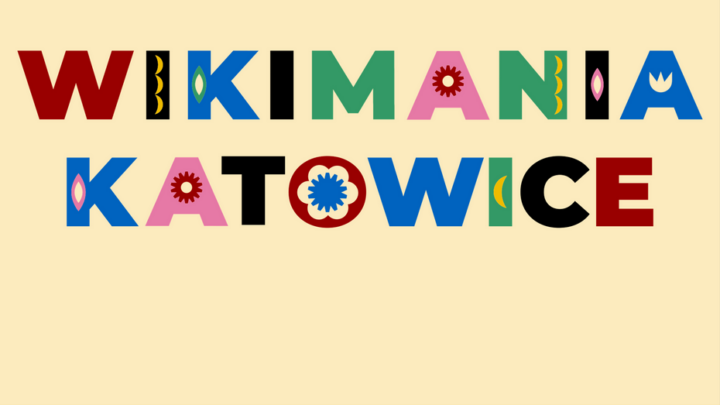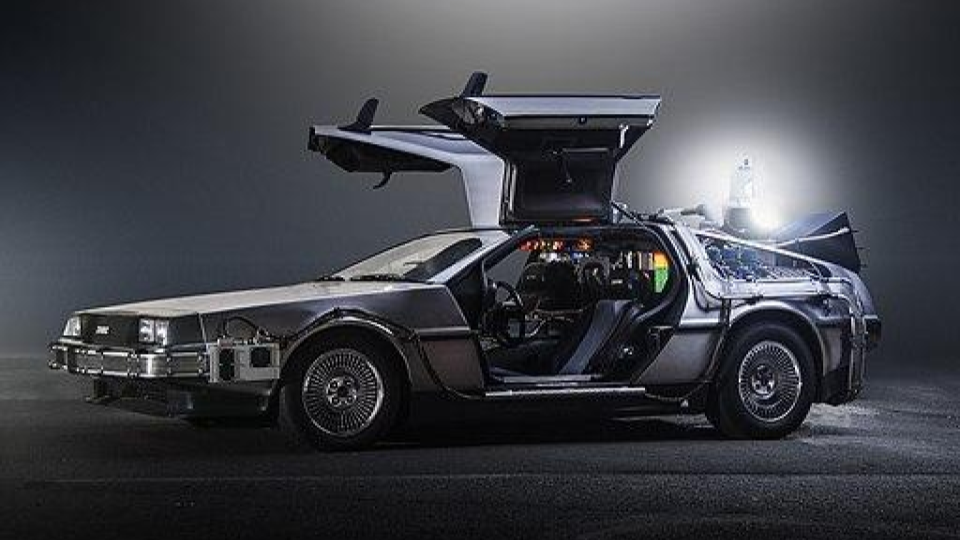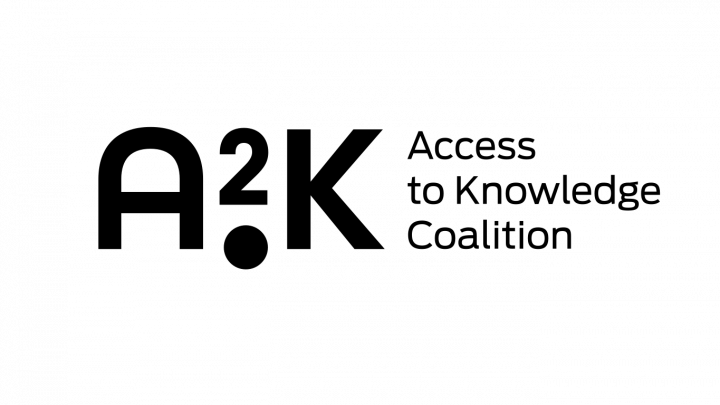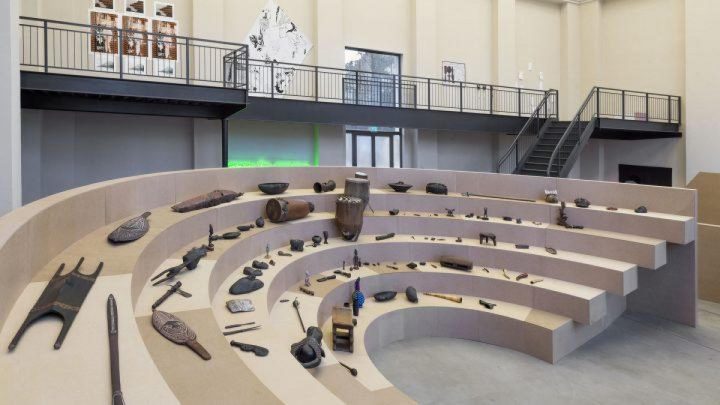Free Knowledge: Hard-won Impact at the European Level
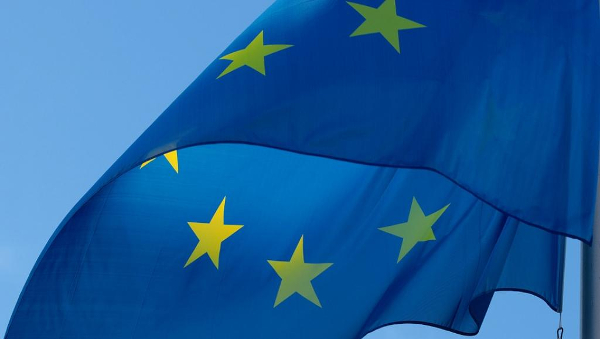
John Weitzmann
24. April 2019
On the other hand, we live in a democracy of associations in which conflicting interests are balanced by the fact that all interests are organized in some way and are heard in the parliamentary process. That is why Free Knowledge also needs a lobby. And it now has, as is currently evident from the EU copyright reform. For the first time in such an important framework setting at the EU level, substantial improvements have been achieved through the joint efforts of communities and Wikimedia staff:
Lobbying for the Common Good Works
The EU copyright reform has kept us on our toes for over two years and the countless discussions, texts, actions, interviews and participation in events have paid off. Together with Wikimedia communities in several EU member states, with individual volunteers and the European Wikimedia chapters, Dimitar Dimitrov and Anna Mazgal, our two Wikimedia staff members in Brussels, have succeeded in introducing a completely new regulation into the text of the directive to protect the legal status of works of art in the public domain, i.e. in addition to the content of the EU Commission’s reform initiative. That will make the handling of historical images in projects such as Wikipedia more legally secure. No one else from the circle of civil society actors has succeeded in doing anything comparable with this reform. Our thanks and respect therefore go to Dimitar Dimitrov and Anna Mazgal, who have by now built up a professional and universally respected representation of the interests of Free Knowledge in Brussels.
It also shows that EU democracy works, that the European Parliament is a genuine representative of European society as a whole, that it plays an active role in the legislative process and that it takes up impulses from outside. The often lamented alleged democratic deficit of the European Union? In practice, it doesn’t seem that much of an issue, at least not in Parliament. Even individual members of parliament can achieve a great deal, and the copyright reform in particular made it clear that passionate arguments in the parliamentary process lead to better results. Even the Council of the EU, the chamber of governments of the member states, has shown itself to be surprisingly permeable to convincing arguments. The informal trilogues are therefore most legitimately criticised as the legendary “black box”, in which too much is still decided with too little legitimacy.
Making Cultural Heritage accessible is becoming more legally secure
The new rule on digitised cultural heritage mentioned above can be found in Article 14 of the reform. It states that, in future, digital images of works of fine art in the public domain must also remain copyright-free and thus freely usable for all in the EU Member States. In 1-to-1 digitisation, therefore, no new property rights may be created. The main focus is on photographic property rights, which would practically undermine the public domain status of the actual work. Such photo rights had made it possible to caution and sue Wikipedia volunteers for scanning photos of public domain works from museum catalogues and uploading them to the free Media Archive Wikimedia Commons, from where they could be incorporated into Wikipedia articles.
The best-known case made headlines in Germany in December 2018 when the Federal Supreme Court sentenced a Wikipedian in the last instance to remove catalogue scans from the internet. Although the Federal Constitutional Court still has to consider a so-called “constitutional complaint” regarding this ruling, the legal situation in Germany will in any case have to change in the foreseeable future as a result of the implementation of the EU copyright reform, so that the ruling of the Federal Court of Justice will effectively become waste paper. In future, it will therefore be (legally) more secure to make already digitised cultural heritage accessible on the Internet. This is a great success for free access and public awareness of art and culture.
Wikipedia References out of the Line of Fire
With regard to the newly introduced ancillary copyright for press publishers, which is also very controversial, we were able to ensure that “very short extracts” from press products can continue to be reproduced license-free. Thus it could be averted that for innumerable references within Wikipedia rights must be clarified and licenses acquired. This would have swallowed up large resources from our volunteer projects and would not have been intended by the publisher associations and the Springer Group, who politically enforced the new “publishing law”. In the first version of the proposed law, however, there was no lower limit, so that even the titles of press articles (which are often referred to in Wikipedia references) would have been covered by this new protective right.
Upload Filters as a Danger to the Exchange of Information and Free Knowledge
The main bone of contention, however, was the new liability rule for Internet platforms, the notorious Article 13 (later 17), which the reform sought to introduce. We spoke up on the issue because it has a massive impact on what people are allowed to say online and how they do it. This exchange between people is so fundamental for the emergence of Free Knowledge, whether in Wikipedia or elsewhere, that we as an association had to and must continue to react accordingly. The German-speaking Wikipedia volunteer community also took a visible stand on this, earning much praise and respect, but also attacks by lobby groups. But where the free exchange of information and knowledge on the Internet is regulated, the volunteers of a project as relevant to society as Wikipedia have the right and, in the opinion of many, even the duty to get involved.
The starting point of the dispute were the legitimate interests of artists, which neither Wikimedia Deutschland, nor Wikipedia authors or other civil society actors question:
The aim of the new provision in Article 13 (or 17) is to make large online platforms such as YouTube and Facebook in particular directly liable for content uploaded by their users. Up to now, platforms have had to delete content only upon notification and are not liable for damages even then. This rather comfortable situation made the emergence of the Internet, as we know it today, possible – for better or for worse. Policy-makers had identified the so-called “value gap” as a cause for concern: copyrighted content is uploaded in large numbers to platforms that earn money directly or indirectly through advertising, too little of which goes to the artists and creators whose content is monetized.
The new direct liability for Internet platforms was meant to force those big players to acquire normally priced licenses for what is uploaded, instead of simply deleting illegitimate content after notice or voluntarily distributing small amounts to the creatives, as YouTube does. But this very fundamental change also affects the core of the entire internet culture that has emerged in the meantime, because remixes, mash-ups, memes and parodies increasingly work with set pieces from protected works. All this now comes into the overall focus of direct liability of the platforms on which it is found. And a general new liability rule applies not only to the big players policy-makers want to hit, but also to thousands of others. This not only affects the deliberate exploitation of external services for advertising revenue, but also all statements made by people online that somehow look as if they could contain parts of a protected image, video, piece of music or text.
Community knows Context, Filters don’t
In order to avoid unlimited liability for all conceivable protected content, many platforms will have to use automatic filter systems in the future that block unclear uploads under licensing law … the infamous upload filters. And they will wrongly block many things, because they cannot carry out the complex legal assessment of whether something is permitted in individual cases, for example as a quotation or parody. Only humans can do something like this in the foreseeable future. And even if at some point “artificial intelligence” should be able to do so, we shouldn’t solely rely on such systems to protect the law and freedom of opinion.

As early as 2018, we drew attention to the consequences of upload filters for Free Knowledge. Photo: Christian Schneider, no-upload filter distribution campaign (6), CC BY-SA 4.0
But it is precisely for this purpose that the legal foundations have now been laid in the EU – by imposing a direct liability on the platforms based on individual works, which can only be handled via technical systems. The potential for abuse of this copyright entry into a “filter net” is enormous. Indicative are the many cases in which copyright law is already being used today as a “censorship right” to sweep unwanted content off the net. Where this happens in future in an automated and mass manner and enforced by law, the online exchange will suffer and with it Free Knowledge.
A Wikipedia Exception and otherwise a lot of Legal Uncertainty
Politicians were quickly persuaded to make an exception to the new liability rules at least for Wikipedia itself. That’s good, but it didn’t really solve the problem:
Whether the other Wikimedia projects (such as Wikidata and above all Wikimedia Commons) will also be spared is still questionable. And the fact that Free Knowledge does not live in a liability oasis called Wikipedia, but depends on free exchange throughout the internet as an ecosystem, has been partly overlooked, partly denied and partly simply ignored by politicians. Accordingly, we have been campaigning and arguing for alternatives to the new liability rule until the end. We have repeatedly made or supported suggestions that would also improve the position of creatives vis-à-vis Internet platforms, but would not filter out unlicensed works.
Firstly, we have called for the overwhelming economic dominance of network giants such as Google and Facebook to be combated using the regulatory instruments provided for them, such as competition and antitrust law, rather than copyright law and all its side effects. Then we called for, if copyright, then stricter liability to be limited to market-dominant players, for that is the only problem. In order to improve the enforcement of copyrights, we then proposed obliging platforms to provide creative people with their own interfaces for subsequent deletions. And better remuneration would ultimately be possible through flat-rate charges (similar to those already practised for storage media and electronic devices) without the need for filtering.
An Implementation Marathon and many unanswered Questions
But in the end, in addition to all the achievements, platform liability remained the problematic approach. A very narrow majority of five votes in the European Parliament decided not to reopen Article 13 (or 17) for amendments. Now there is a two-year transposition deadline, during which the EU member states must transpose the reform into national law. The Wikimedia associations and the communities of the various Wikimedia projects will accompany this on site. For Wikimedia Deutschland, Article 14 and access to digitised cultural heritage are of course high on the list of priorities. What consequences the new publishing law and the stricter liability rules will have for the internet and thus for Free Knowledge, will in some cases only emerge through years of court proceedings. Some things will end up better than feared, some worse, much of this overdue reform is good and right. In any case, Free Knowledge has made it to the Brussels stage.

